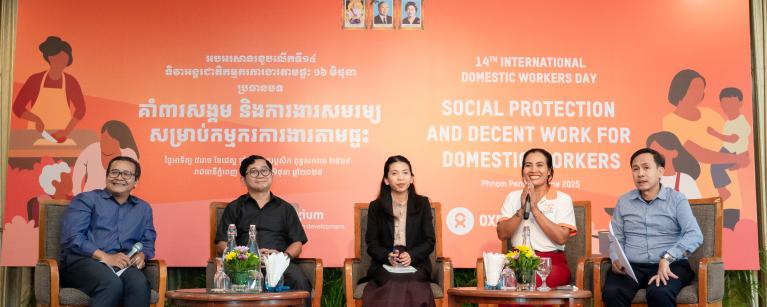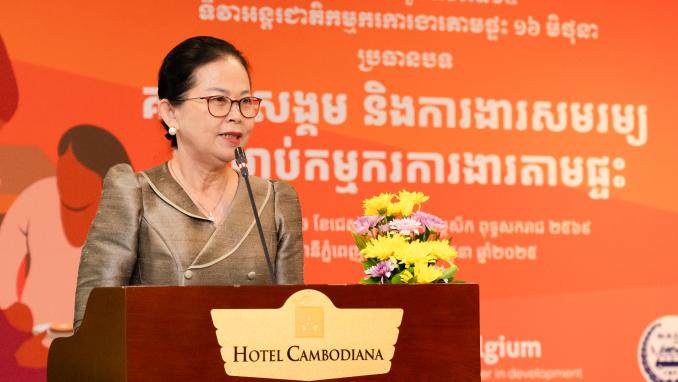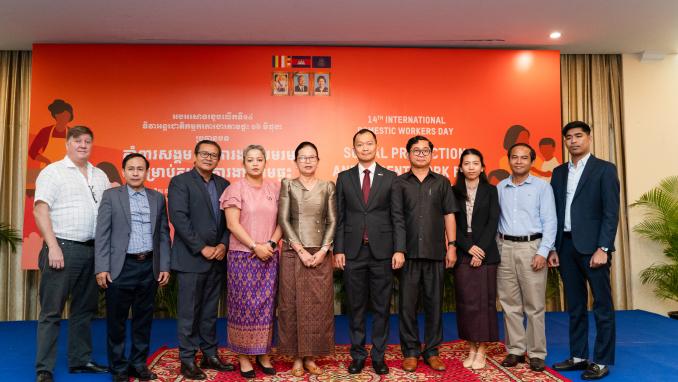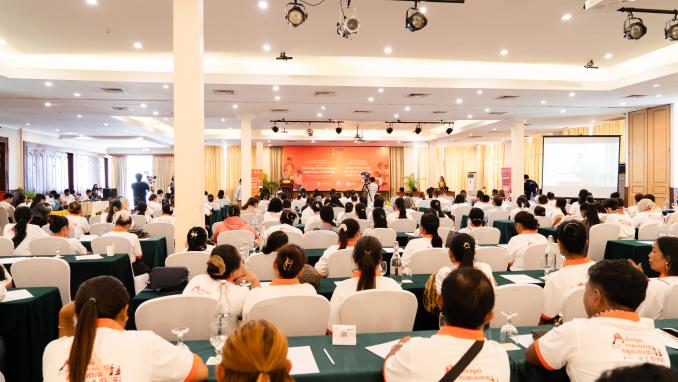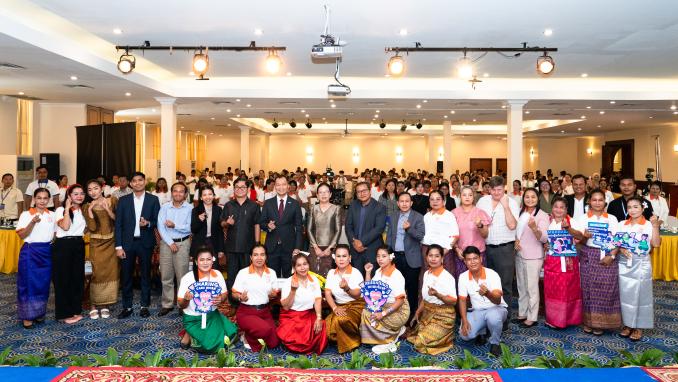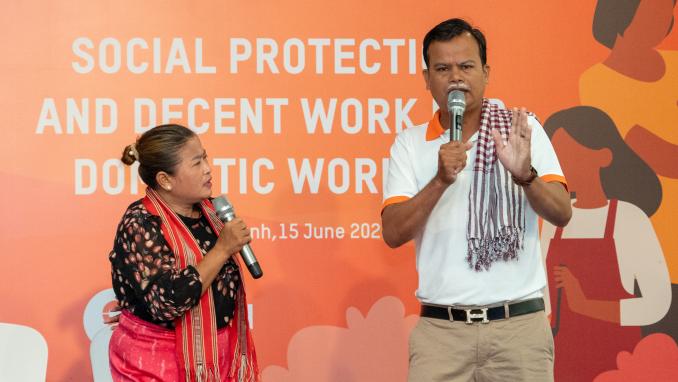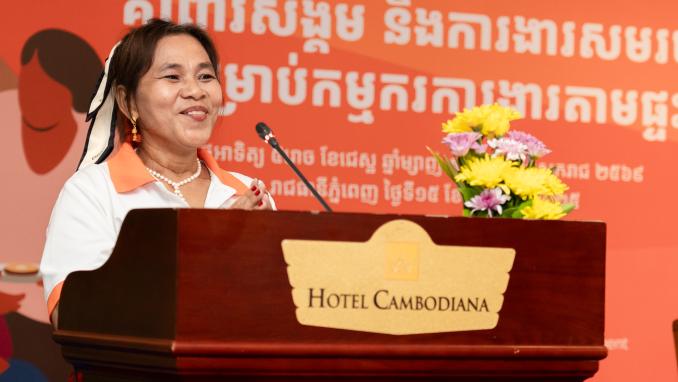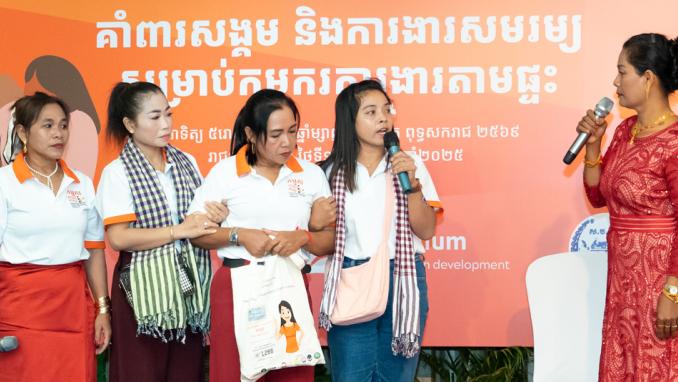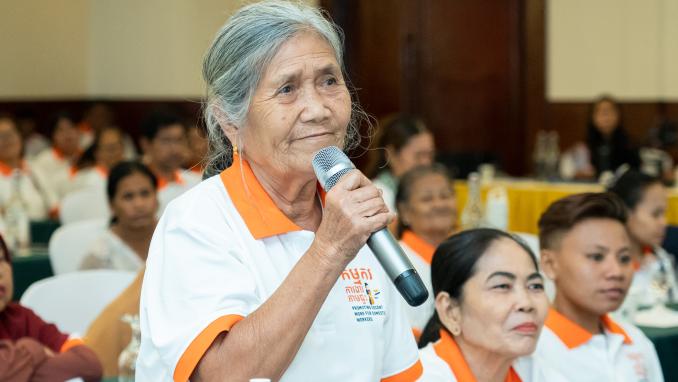The Independent Democratic Association of the Informal Economy (IDEA) and Oxfam, on June 15, jointly celebrated the International Domestic Workers Day under the theme of “Social Protection and Decent Work for Domestic Workers” to keep promoting and commemorating the global recognition that domestic workers enjoy the same rights as other workers do.
This forum presented an opportunity for direct dialogue between relevant stakeholders and domestic workers to share challenges, insights and experiences related to social protection policies and practices, and to present requests to policymaking-related actors so that they can explore appropriate measures and solutions in the future.
Approximately 300 participants, including female domestic workers, unpaid caregivers, representatives of employers, senior citizens, people with disabilities, female street vendors, and representatives of deliverymen from the informal economy, representatives from partner organizations, development partners, and the Royal Government of Cambodia, participated this year’s International Domestic Workers Day.
“Domestic workers are one of the main economic drivers which are often overlooked. We celebrate the International Domestic Workers Day each year to promote the rights of all domestic workers in Cambodia to social protection and to support efforts to gain public and policymakers’ recognition of the need to include domestic workers in social protection schemes like other workers. Investing in women’s protection services and social protection for domestic workers means that Cambodia promotes equal rights for domestic workers so that they receive social protection and invest in their potentials to contribute to driving Cambodia’s economy, as well as to realization of Cambodia’s goal of becoming an upper-middle-income country.”
According to a report by the International Labor Organization (ILO), domestic work is a significant part of the workforce in the informal economy. In 2019, An estimated 75.6 million male and female workers worldwide, aged 15 and over, were employed as domestic workers, of whom 76.2% were women. These domestic workers included those employed directly by their landlords and those hired through service providers.
In Cambodia, domestic workers perform a variety of tasks, such as cooking, cleaning, laundry, taking care of children, the elderly and household members, gardening, property maintenance, taking care of pets, and driving for the landlords. Understanding the context and current situation of domestic workers in Cambodia remains limited due to absence of comprehensive research.
According to a research in 2019 by the International Labor Organization on living and working conditions of domestic workers in Cambodia, domestic workers remain among the most vulnerable groups. They face restrictions on their freedom of movement, are subject to low wages, lack of clear employment contracts, overtime work, insufficient rest, excessive workloads, and are at higher risk of physical and sexual violence and trafficking.
Cambodia has not yet ratified ILO Convention No. 189 on Decent Work for Domestic Workers. The Labour Law does not even specifically address domestic workers. The Ministry of Labour and Vocational Training’s Prakas No. 235 issued in May 2018 aligns with provisions stipulated in the ILO Convention No. 189 and Recommendation 201, but does not include cross-border domestic workers, and does not specify capacity building and clear mechanisms to protect domestic workers, especially child workers. Similarly, a standard format of employment contract for domestic workers has not yet been developed.
“Until now, domestic workers have not been fully subscribed to enjoy full benefits of social protection systems, such as health care, occupational risks, and pensions. At the same time, efforts to strengthen and build capacity of domestic workers remain very limited, as domestic workers are considered to be those who do not need skills like other workers. In fact, domestic workers are of equal value with other workers and, therefore, shall have equal rights to benefits from social protection systems and services and freedom of association, which ensures that they are also able to receive the same benefits as other workers in Cambodia and they should not be left behind.””
Oxfam and its partners call on the Royal Government of Cambodia to ratify the International Labor Organization Convention No. 189 on the Rights of Domestic Workers and to take necessary appropriate measures to support the implementation of this Convention in the country, to ensure that the Royal Government of Cambodia is able to realize its Sustainable Development Goals, as well as its goal of becoming an upper-middle-income country by 2030 and a high-income country by 2050.
